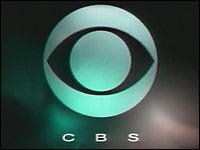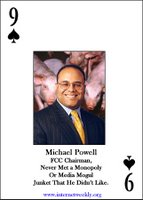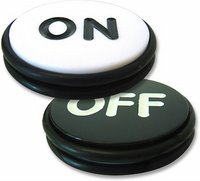« Home | Maybe the long tail isn't wagging the dog after all »
CBS Corp: First Move To Counter FCC Indecency Movement
 Time to go to court! Let's see CourtTV cover this one. At least better than the actual "wardrobe malfunction" in question: the infamous Janet Jackson incident during the 2004 Super Bowl halftime show, drawing a $550,000 fine against CBS Corporation.
Time to go to court! Let's see CourtTV cover this one. At least better than the actual "wardrobe malfunction" in question: the infamous Janet Jackson incident during the 2004 Super Bowl halftime show, drawing a $550,000 fine against CBS Corporation.
CBS announced today it is appealing. So it's CBS v. FCC...game on!
For the first time since the passing of the Telecom Bill of 1996, which opened the doors for media companies to dramatically expand their ownership limits and created a massive merger & acquisition phase among broadcasters, broadcast companies may be ready to stand up against the FCC's indecency movement. In order to grow these last 10 years, radio and TV companies have heavily paid the costs of being allowed to be bigger: big fines issued by the FCC whenever programming is labeled "indecent". Now CBS is ready to take the FCC to court. Fine penalities recently increased ten-fold were passed by Congress. Perhaps enough is enough. Perhaps the open risk of vague rule breaking just got too expensive to be allowed to continue. Perhaps media is ready to defend one of its principle assets: the broadcast of free speech.
Now CBS is ready to take the FCC to court. Fine penalities recently increased ten-fold were passed by Congress. Perhaps enough is enough. Perhaps the open risk of vague rule breaking just got too expensive to be allowed to continue. Perhaps media is ready to defend one of its principle assets: the broadcast of free speech.
The largest radio companies -- CBS Radio (formerly Infinity Broadcasting up until December 2005) and Clear Channel -- have absorbed the most fines due to their star talent. While Howard Stern was with Infinity, the "King of All Media" racked up several million dollars in fines for his nationally-broadcast show. Clear Channel received them, too -- for Stern as well as for Bubba the Love Sponge and others. As did other companies. Most companies appealed to the FCC; however, their efforts might be categorized as "less than vigorous" for one simple fact: no radio company wanted to impede its ability to acquire more stations, which the FCC could stall and essentially prevent. In addition, more importantly, no company wanted to jeopardize their own broadcast license, either. Nor have further restrictions placed on their multi-media holdings (such as cable TV networks).
Most companies appealed to the FCC; however, their efforts might be categorized as "less than vigorous" for one simple fact: no radio company wanted to impede its ability to acquire more stations, which the FCC could stall and essentially prevent. In addition, more importantly, no company wanted to jeopardize their own broadcast license, either. Nor have further restrictions placed on their multi-media holdings (such as cable TV networks).
So, in effect, if radio wanted to continue to expand its holdings, by de facto, it had to kowtow to the Republican-led congressional FCC's agenda protecting "community values" over the public airwaves. Appeals were rejected and the fines, while not preferred by broadcasters, were paid. To prevent further fines, aggressive broadcast delay buttons were installed, broadcasts heavily monitored and edited for instant dumping of questionable material...and, ultimately, the more "extreme" or "outrageous" examples of programming were dropped or faded away.
Radio had to retreat from one of its leading edges. The most noticed observation as radio companies became safer major public corporations listed on Wall Street was that radio chose NOT to make this a "free speech" issue, to NOT take it to the Supreme Court, to NOT force a change in law to remove the ambiguities defining "indecency" and, what appeared to many media watchers, the apparently inconsistent manner the FCC made its decisions, especially under the guidance of former Commissioner Michael (son of Colin) Powell.
The most noticed observation as radio companies became safer major public corporations listed on Wall Street was that radio chose NOT to make this a "free speech" issue, to NOT take it to the Supreme Court, to NOT force a change in law to remove the ambiguities defining "indecency" and, what appeared to many media watchers, the apparently inconsistent manner the FCC made its decisions, especially under the guidance of former Commissioner Michael (son of Colin) Powell.
It gave the appearance that the FCC (whose members are appointed, not elected) had a political agenda spearheaded by the Republican Congress and Republican White House...instead of following its non-partisan, unbiased mandate, as was defined when the Commission was originally created.
So radio took its lumps, neutered its programming to fit political and corporate interests...and accepted it as the cost of doing business, even if it meant removing highly-profitable shows and talent.
At the same time, radio shows others considered offensive -- such as the neo-conservative hate rantings from Rush Limbaugh, G. Gordon Liddy and others -- stayed clean of fines. Apparently, being offensive really wasn't offensive if it supported the government's talking points. The entire broadcast indecency movement hit its crazed pinnacle, however, not because of radio. Blame TV for that. It was the 2004 Janet Jackson Super Bowl halftime incident, broadcast on the CBS TV network. For .56 of a second, Janet had her open right breast and jewelry-shielded nipple exposed after Justin Timberlake ripped off her bodice, right before the lights went out. Viewers at home saw an act in a blink, not the actual breast or nipple. If they wanted that, all they had to do was go to the Internet, where the Drudge Report (and many other conversative-leaning websites) posted video clips and stills of the "indecent" act. And this was before YouTube and Google Video (which, of course, keep it in their active archives). For that .56 of a second broadcast across America and the world, the CBS TV network got fined a whopping $550,000.
The entire broadcast indecency movement hit its crazed pinnacle, however, not because of radio. Blame TV for that. It was the 2004 Janet Jackson Super Bowl halftime incident, broadcast on the CBS TV network. For .56 of a second, Janet had her open right breast and jewelry-shielded nipple exposed after Justin Timberlake ripped off her bodice, right before the lights went out. Viewers at home saw an act in a blink, not the actual breast or nipple. If they wanted that, all they had to do was go to the Internet, where the Drudge Report (and many other conversative-leaning websites) posted video clips and stills of the "indecent" act. And this was before YouTube and Google Video (which, of course, keep it in their active archives). For that .56 of a second broadcast across America and the world, the CBS TV network got fined a whopping $550,000.
CBS had appealed its radio fines and, ultimately, paid them. CBS tried to play nice (they even outraged some in the black community for their lack of defense for Ms. Jackson). CBS appealed this TV fine, too...but remains resolute in not paying it. For the first time post-Telecom, a media company is taking its case to the Courts and not just the FCC. Today, CBS announced it is actually taking the FCC to court over the $550,000 nipplegate fine, announcing that it is filing an appeal today (7/28) in the Third Circuit Court of Appeals and has paid the fine only for procedural reasons to allow the appeal. It fully intends on winning and getting its money back. It might mean going all the way to the Supreme Court to do it.
Maybe enough is enough. Just last month, Congress passed news laws against broadcast indecency, raising minimal fines ten-fold, from $32,500 per incident to $325,000. That may have been the straw that broke the camel's back. Of course, the indecency movement will plead its case, too. But maybe...just maybe...media companies have re-found the will to take a stand for free speech, for common sense and a reminder that radio listeners and TV viewers always have the real control. It's the public that controls the on/off button, it's the public that decides what programs to watch or listen to, and it's the public that decides what is too "offensive" or "indecent" simply by voting in the ratings system or by supporting the advertising spent for the programming. In media, ratings (or subscribers) still matter most to drive revenues.
Of course, the indecency movement will plead its case, too. But maybe...just maybe...media companies have re-found the will to take a stand for free speech, for common sense and a reminder that radio listeners and TV viewers always have the real control. It's the public that controls the on/off button, it's the public that decides what programs to watch or listen to, and it's the public that decides what is too "offensive" or "indecent" simply by voting in the ratings system or by supporting the advertising spent for the programming. In media, ratings (or subscribers) still matter most to drive revenues.
We don't need the government in our living rooms, our cars, our bedrooms. The goverment doesn't need to be our eyes or ears deciding what we should enjoy through media and entertainment. Instead, we need them to be our eyes and ears protecting us against threats, such as terrorism or economic security.
Good for CBS for being the first to take on the FCC; perhaps this is the first of many steps to reverse a shameful media trend.
posted by Unknown @ Friday, July 28, 2006,
![]()
![]()















